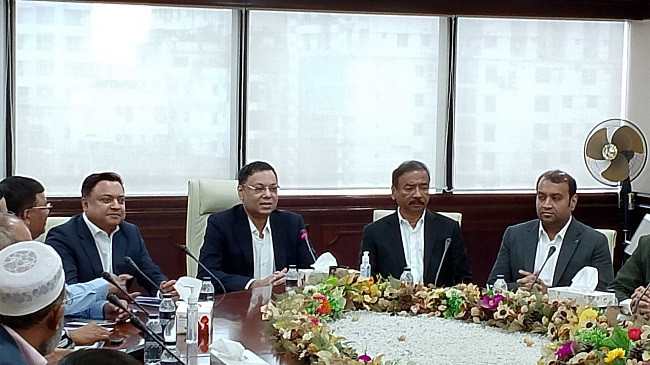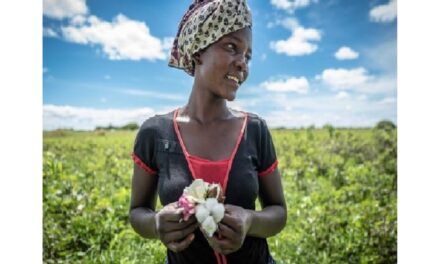 The Bangladesh Textile Mills Association (BTMA) held a press conference at their headquarters in UTC Bhavan, Dhaka, urging the government to prioritize the garment and textile sector to prevent further economic decline. BTMA President Shawkot Aziz Russell emphasized the need for uninterrupted gas supply and financial incentives to revitalize the struggling industry.
The Bangladesh Textile Mills Association (BTMA) held a press conference at their headquarters in UTC Bhavan, Dhaka, urging the government to prioritize the garment and textile sector to prevent further economic decline. BTMA President Shawkot Aziz Russell emphasized the need for uninterrupted gas supply and financial incentives to revitalize the struggling industry.
Russell highlighted that several factories have already closed due to ongoing challenges, with international orders being diverted to neighbouring countries. “This situation must end, and the government must focus on saving this sector,” he said, calling for decisive action.
One of the major concerns raised by the BTMA was the allegation of foreign conspiracies behind recent unrest in garment factories in Savar, Ashulia, and Gazipur. According to the organization, agents linked to external forces have been inciting violence and vandalism, aiming to divert orders away from Bangladesh to other countries. “Unidentified groups, equipped with sticks and hammers, have been vandalizing factories, creating unrest deliberately,” Russell added, referencing incidents where rioting was reportedly fueled by social media posts.
In addition to these issues, textile mill owners addressed the severe energy crisis plaguing the sector. Most manufacturing units are operating at just 30% capacity due to inconsistent gas supply. “Even if gas prices increase, we are not receiving an adequate supply,” Russell said, noting that some factories are now relying on diesel, which has hindered productivity.
The illegal import of yarn from neighboring countries was another pressing issue discussed at the press conference. BTMA leaders alleged that significant quantities of yarn are being smuggled into Bangladesh, harming the domestic industry. The organization called for an immediate ban on yarn imports through land ports, suggesting that imports should be restricted to sea ports like Chittagong to combat the smuggling problem.
Additionally, the BTMA expressed concerns over the financial sector, claiming that good entrepreneurs are struggling to secure loans due to corruption and mismanagement. Russell stated that they have formally written to the Chief Advisor of the Interim Government, Muhammad Yunus, asking for a reassessment of whether Bangladesh is truly ready to graduate from LDC status by 2026. He mentioned that inflated export data during the last government’s tenure had created unrealistic expectations, with official figures rising from $14 billion to $48 billion in the 2022-23 fiscal year.
Russell and other BTMA leaders, including Vice President Abul Kalam and directors Mosharraf Hossain and Motiur Rahman, urged the government to address these challenges swiftly. “If the textile and apparel industry is recognized as a key driver of employment and economic growth, many of these problems can be solved,” Russell concluded.
The press conference underscored the urgent need for governmental intervention to stabilize Bangladesh’s crucial textile industry amidst growing internal and external challenges.





















